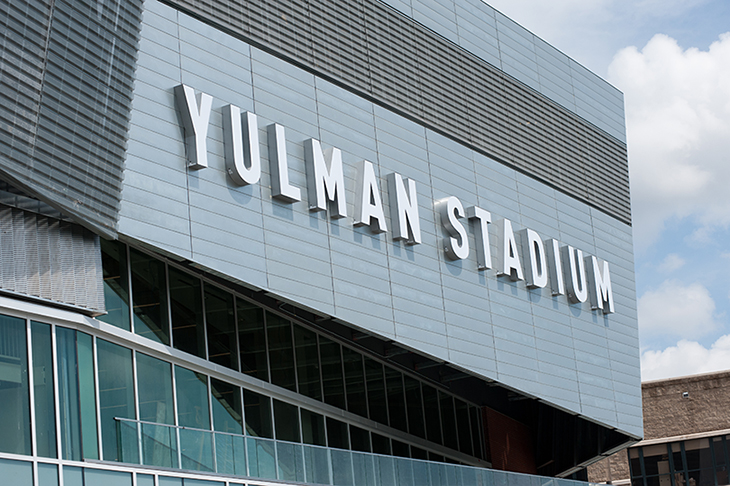Tulane is a leader in LEED certification

Yulman Stadium is the latest university building to receive LEED certification, the hallmark of reducing environmental impact, from the U.S. Green Building Council. (Photo by Sally Asher)
The silvery exterior of Yulman Stadium on the Tulane University uptown campus conceals a secret: The new sports facility is green on the inside.
The U.S. Green Building Council certified Yulman Stadium with LEED (Leadership in Energy and Environmental Design) Silver Certification. Soon the LEED plaque will be installed at the stadium, indicating that it has joined other Tulane University buildings with the “green” designation.
The internationally recognized LEED certification indicates the university"s commitment to reducing environmental impact, says Liz Davey, director of the Office of Sustainability, a division of the University Planning Office.
“LEED is basically a list of about 60 things that we can do to reduce the environmental impact, and to make the building more healthy and comfortable for the people who are occupants. The more of those actions you do, the higher the certification,” Davey explains. “Our approach to LEED has been very practical, emphasizing energy efficiency, water conservation and indoor air quality, then we do other actions on the list that make sense for the project.”
Tulane has a core list of LEED standards for building projects. Each step of the planning, design, construction and operation stages must be carefully documented.
For Yulman Stadium, 38 percent of the cost of building materials was spent on recycled materials, primarily steel, Davey says.
“All members of the design team, construction team, and Tulane"s team put forth a great effort for this achievement,” says Josh Beezley, project manager in Capital Projects. Beezley, along with eight colleagues at Tulane, is a LEED-accredited professional.
The university"s LEED program has helped transform the building industry, Davey says. “One of the biggest impacts of our commitment to LEED has been giving local architects, contractors and others in the building design and construction industry an opportunity to work with LEED.”
For Yulman Stadium, 38 percent of the cost of building materials was spent on recycled materials.
